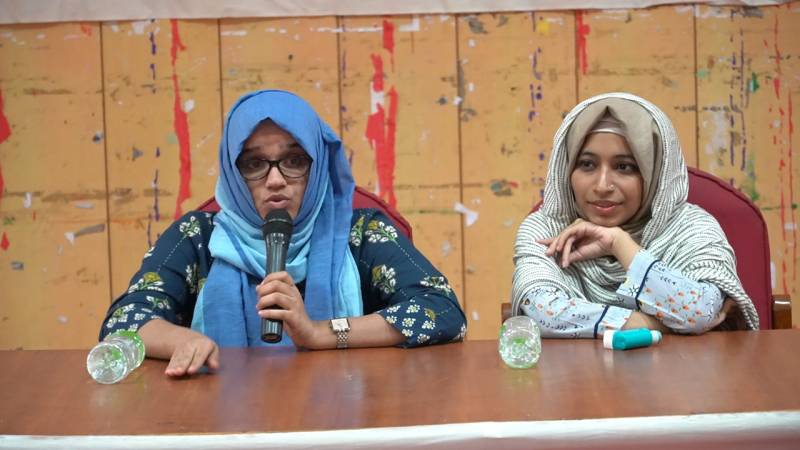Hyderabad police warned us not to provoke University students: Ladeeda Farzana
By Dheeshma
Hyderabad: “With the Babri verdict, judiciary excluded the minority and the Citizenship Amendment Act constitutionally excluded them. Meanwhile, the National Register of Citizens will physically exclude the minority. It is apparent who is going to be excluded,” said Aysha Renna, who alongside Ladeeda Farzana became the face of anti-Citizenship Amendment Act protests.
The two Jamia Millia Islamia students were speaking at Hyderabad Central University near Rohith Vemula’s bust during CAA protests. “Gunshots have religion, disappearances have religion, then how can you say our politics should not have religion,” asked Aysha.
Addressing HCU students, Ladeeda said, “This movement has to rise from every corner of India. We cannot stop this midway, and we are surely going ahead with it until CAA is revoked. Rather than concentrating on the capital city, we want this movement to rise from every nook and corner of this country.”
At a time when women’s bodies become the battleground to politics of hate, Ladeeda and Aysha have come forward, asserting their religious identity in a fight against fascism and islamophobia. The students also commented on the right-wing trolls and hate-campaigns on their identity.
Hyderabad showed this revolution will continue no matter what. Sincere thanks, respect and honor. @asadowaisi @aimim_national Students of UOH, MANUU and OSMANIA university. The land of Rohith will continue the struggle. Insha Allah 💪#NRC_CAA_Protest #NRC_CAA pic.twitter.com/ziAVnnd6bw
— Ladeeda Farzana (@ladeedafarzana) December 24, 2019
Reacting to islamophobic trolls, Ladeeda said, “We are happy that the students in this country have started to speak about Muslim rights. I am a girl in a hijab who is asserting her identity and speaking for her people. If someone has a problem with that, I would say there is something wrong with their idea of secularism.” Citing an example, she added, “At MANUU, the police blocked us and warned us not to provoke students with our speech. Will they say the same to somebody else? We believe they said this to us only because we are Muslim women and our identity is visible.”
HCU students had their take on the issue and Aysha and Ladeeda’s stand. Hafeesha (name changed), a PhD scholar in Woman Studies, commented, “I don’t think Indian public has ever seen Muslim women protesting for their rights on streets like Ladeeda and Aysha. They have embodied the question of Muslim women’s agency, and it’s incredible.”
A student from the Political Science department shared her experience while studying at Jamia. “Many have asked me whether I felt unsafe as a Hindu girl in a Muslim majority university. I urge all non-Muslims to co-exist with Muslims in spaces that the latter dominate. At least that way, we can erase societal prejudice attached to such beliefs.”